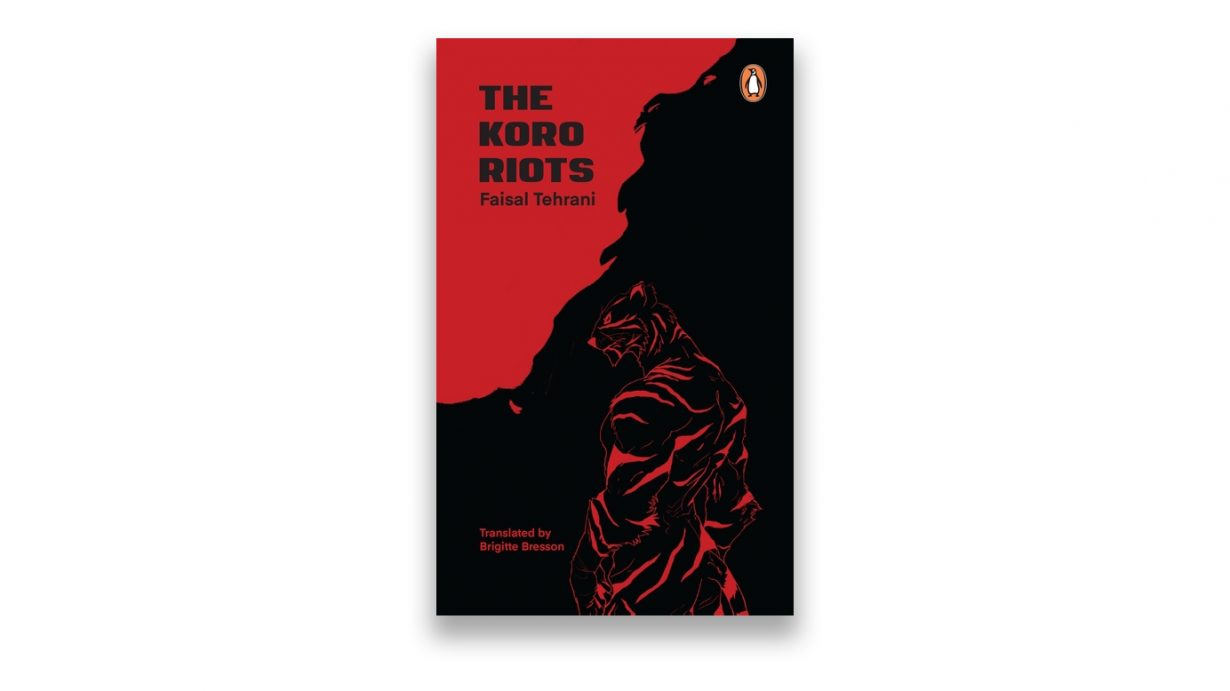Faisal Tehrani’s latest novel alludes to Malaysia’s messy political landscape in a manner that will be deliciously and thinly veiled to those in the know

A strange plague afflicts many men across the (imaginary) country of Hujung Manani: their penises have retracted, diminished, disappeared. The result, whether you’re the head honcho (‘the Dictator’), generic motorcycle-riding ruffians (‘mat rempits’), a closeted, retiring police detective or a spymaster, is terror. What starts as a cramp in the lower belly swiftly morphs into a void where your prized manhood once was. The etiology is uncertain: some blame the local LGBT population and swiftly enact vigilante justice; others blame contaminated pork and castigate Chinese pig farmers. Chaos abounds. The only constant is the lack of any cure.
Faisal Tehrani’s latest novel alludes to Malaysia’s messy political landscape in a manner that will be deliciously and thinly veiled to those in the know. Kickstarted by the brutal murder of Sistine – a fictionalised version of Shaariibuugiin Altantuyaa, the murdered Mongolian national allegedly involved with former Malaysian Prime Minister Najib Razak – the generative incident of the novel is one of a karmic nature: a sudden cascade of incidents during which men lose their penises right after committing racist and sexist acts, ostensibly due to a hex that Sistine issued with her dying breath. Named after the real-life illness koro (which in Malay means ‘head of a turtle’ and here specifically references its retraction into the shell), a culture-bound delusion of penis shrinkage, the mass panic caused by Sistine’s curse lays bare both the moral hypocrisy and corruption that runs through Hujung Manani. From religious leaders guilty of sodomising their young charges to racist bureaucrats surreptitiously calculating the most expedient ways of consolidating power, the gradual onset of koro uncovers the extent to which patriarchy, religiosity and hypocrisy undergird local society.
A former French colony, Hujung Manani shares borders with in-universe versions of Malaysia, Indonesia and Singapore, and boasts an economy centred around plastics – much like how real-world Malaysia was built upon petrocapital and served as the largest importer of global plastic waste in 2018. Deploying a whirlwind, almost breathless narrative pace, scattered with a colourful cast of characters, the fractured style of the novel with its rapid perspectival shifts highlights the complexity of a postcolonial nation’s political reckoning. The novel also highlights the violently simple tactics that nascent nation-states and their leaders revert to after revolutions: immediate cronyism and despotism enshrined through weaponised ideology, in this case Islamic fundamentalism. While the language is generally crude and descriptions so frequently vulgar that they push the boundaries of even a reflexive parody, the sardonic tone and the elegant inclusion of real historical analysis through poetic allusion serve to emphasise the earthiness of everyday political posturing within a culture of racist machismo.
Central to the novel is an astute sense of humour and absurdity that identifies specific social phenomena and microaggressions within present Malaysian society with an almost documentarian clarity: the public disavowals of folk magic but also its private usage within elite circles; the casual performance of religious piety while defying, in other activities, its moral tenets; blaming minority communities for structural and social failures of the state. Against this exhausting backdrop, the emergence of heroic, though quirky, figures such as a young forensic scientist who sought the truth of Sistine’s death, an elderly female politician with the moniker ‘True Patriot’ and a general who has rediscovered his moral compass owing to his love for his daughter curtails the fatalism inherent in dystopian political satires and offers moments of hope. Tehrani’s parting shot is a quote from history: ‘I see nothing but beauty’. Attributed to Sayyida Zaynab bint Ali, granddaughter of prophet Muhammad, in response, after being subjected to unspeakable atrocities, to a despot’s questioning her faith. In this moment, the author lets slip of the parody to reveal a fierce, sincere conviction for the possibility of political reform as an act of divine will – made manifest through love, courage and the people.
The Koro Riots by Faisal Tehrani, translated by Brigitte Bresson. Penguin Random House SEA, £13.95 (softcover)